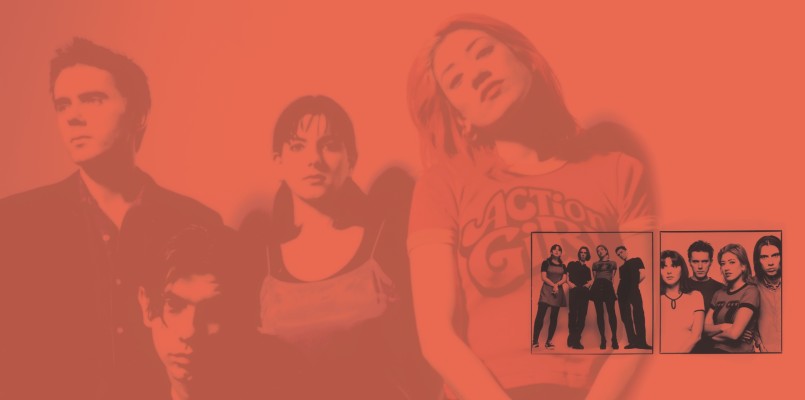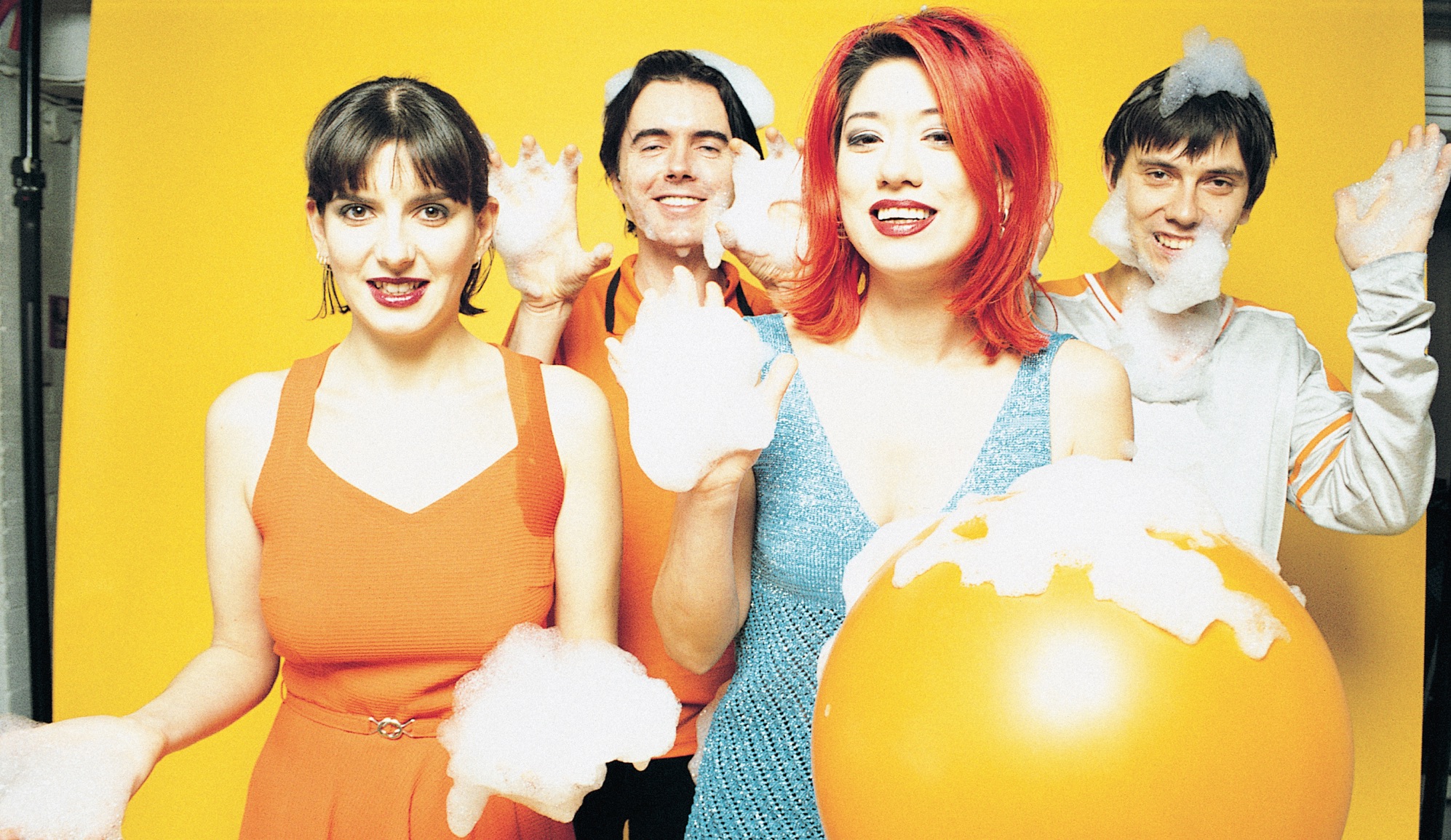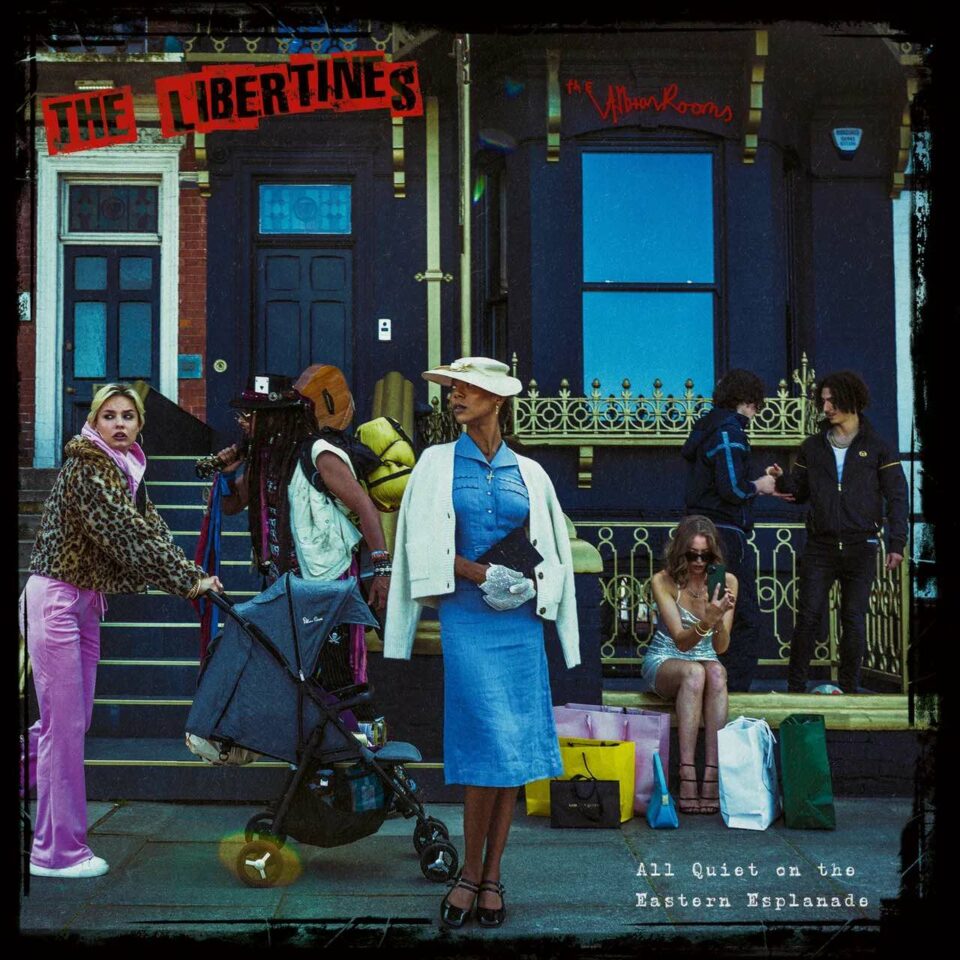You can’t go home again, especially when home isn’t as roomy or singular a space as you once imagined. Take Lush, the gorgeously melodic, femme-forward, feedback-soaked dream-pop ensemble devised by old-pals-turned-guitarists/vocalists Miki Berenyi and Emma Anderson. After starting in 1988, the London-based band got so lumped into 4AD label gauziness and the symmetry of shoegaze with the forward-leaning bombast of their initial EPs and first two albums—1992’s Spooky and 1994’s Split—that, by the time of their echoless Lovelife in 1996, Lush’s blunt, melodic tones were viewed as a sellout to Britpop. That was all well and good, however, as the third album was the quartet’s best selling. But the door to further success was shuttered when drummer Chris Acland committed suicide in October of that year, effectively ending Lush and creating a legend for a band that lasted less than a decade.
What makes Lush even more fascinating is that their leaders didn’t wear out their welcome: Anderson formed Sing-Sing, which sounded little like her former band; Berenyi went into magazine editing. Presently, though, nearly all of Lush’s releases have been reissued as one big five-disc box set called Chorus. There’s also the new Blind Spot EP that acts as a preview to a potential new album, and the requisite reunion tour—all of which gives Berenyi and Anderson plenty to talk about.
You’re not fans of being lumped in with the shoegaze scene, are you?
Emma Anderson: No. We don’t sound like Ride. Or My Bloody Valentine. I don’t know what it means, really.
Were there bands with whom Lush felt a kinship at its start?
Anderson: Miki was quite close to the garage rock scene, groups devoted to the whole Nuggets vibe. I was all about post-punk. I liked the Cocteau Twins and Siouxsie and the Banshees. Steve [Rippon, bassist] was into The Beach Boys and The Byrds. Chris liked anarchist punk. We were quite split; odd, then, that our music was so focused.
You two were old friends and had a fanzine called Alphabet Soup. Was starting a band together more about making music or about the idea of music?
Miki Berenyi: Probably a bit of both. We were inspired to be in a band because everybody else in London was doing it. I would not have picked up an instrument if it didn’t seem immensely feasible. If I was in an environment where everyone was designing clothes, who knows if I wouldn’t have done that instead? Everyone was inspired to make music no matter how bloody awful they were because they were having fun. It was a laugh. Why not? Once I figured that I was actually quite good at it that was better still.

Lush signed with 4AD in 1989. That must have been quite a coup, as your sound and theirs were quite inequitable. Did that mean something to you?
Berenyi: Absolutely. When Emma and I were in school together, labels like Factory, Rough Trade, and 4AD all had their own atmospheres about them. Being into the music meant knowing a label’s vibe, individual design aesthetic, every aspect. I’m sure other labels came to our gigs and left after one song—we knew that’d happen—but 4AD didn’t leave.
How were women musicians treated as part of that scene—in the UK and in America, when you came over for Lollapalooza in 1992?
Berenyi: Between ’83 and ’88, there were a lot of girls in bands so it didn’t seem sexist. There was a lot of politicking, green stuff, and anarchy in common, so feminism was quite potent. I felt much less self-conscious being a woman in that scene than I did in London’s straight world. In America, we were in that alternative pocket before “alternative” became massive and mainstream, so it was this world of gentler boys and assertive girls. The only time we felt as if nothing had changed was at Lollapalooza. The bands were lovely but the vibe was very macho: subservient girls in white mini-skirts, wanna-be hard guys.
Anderson: Lollapalooza was a bit macho—Ice Cube, Red Hot Chili Peppers, Pearl Jam—but where we came from was very female-centric. When things really got macho was when Lovelife came out. In the UK, it was right in the middle of lad culture, the time of Oasis: footballer magazines and such. Suddenly, we got asked to be in glossy magazines and to pose a certain way because we were women with a Top 40 single. There were models with short skirts and low-cut shirts dancing around us on TV; it was a whole other world. We wouldn’t pose in our bras and knickers on those loud and loutish TV shows filled with shock value. We avoided it.
That whole Lovelife period was weird at first, because you had betrayed shoegaze in critics’ minds for something lighter and poppier. How did you feel, hearing that?
Berenyi: We never had a clear singular path or were showered with glory in the first place. The real story of Lovelife was in its production. We had had mentor producers before and got bored of that. What we wanted to do was make a record that sounded like us. The easiest way of doing that was just having our live soundman do it. That meant that the layers were gone. People thought that we did that deliberately to sound all Britpop. We were just trying to simplify.
Then Chris died. In retrospect, do you think you would have carried on as Lush if he hadn’t committed suicide?
Berenyi: Personally, I do. If he had stayed alive, maybe I would have made more music. I think we would have pulled through it and tried to have made another record. Maybe we would have fought; maybe we wouldn’t have finished it. We would have tried.
Anderson: I think we were done. Chris dying… I’ll be honest with you, by that time, I had had enough. It was time to move on.

Coming back with the box set, the reissues, do you think Lush now is radically different than it was then, and are you going to maintain it as a vehicle for new music or to maintain its legacy?
Berenyi: I was terrified of playing gigs after not doing them for twenty years. I thought it would be a nightmare, but I’m finding that I can do this, actually. We did an EP of new songs and asked ourselves if we need to make them Lush-like, and the answer is: no. Just do them and they’re Lush. I thought it was going to be harder and more depressing, but it’s fun.
Anderson: Writing and recording new music was a big carrot dangling in my face. I don’t know that I would have done it otherwise. Then again, most of you will probably walk out on the new songs anyway when we play them. [Laughs.] FL
This article appears in FLOOD 3. You can download or purchase the magazine here.









